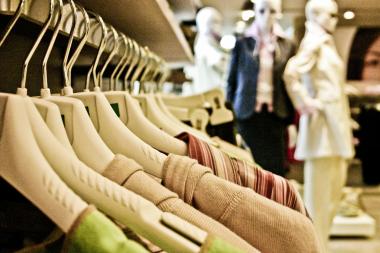Consumption after Corona: Consumers focus on Quality and Sustainability
Study by Roland Berger and Potloc
- Consumers expect more quality (67%) and sustainability (51%) from brands and products
- Small retail stores are trendy and score with exclusive product range
- Furniture, household and garden articles remain in focus
The Covid pandemic has changed the purchasing behavior. Consumers are focusing primarily on brands with high quality standards (67%) and sustainable products (51%). Even though the trend towards online shopping remains unbroken, small stores in particular can score points with exclusive product ranges. Almost a third (32%) of consumers visit these types of stores more frequently than before the crisis. These are the core findings of the "Decoding Consumer Behavior" study published in fall 2021 by Roland Berger and Potloc, for which 2,100 consumers from twelve countries were surveyed.
"Overall, consumers are much more positive about the future and, for the most part, do not want to cut back further in 2022. This is good news for retailers, who had to overcome an unprecedented cut with the pandemic," says Thorsten de Boer, Partner at Roland Berger. "However, brands and retailers should take into account that consumers have different priorities when making decisions today. They also expect a consistent online presence across platforms and devices more than ever. And when they enter a store, they are looking for an exclusive experience."
Customers focus on goods for their own homes and everyday needs
In the immediate purchasing decision, value for money (68%) and quality (56%) are the most important criteria for consumers. Here, too, sustainability is becoming increasingly important. One-third want to give even greater consideration to this criterion in the future. Sustainability has finally reached the consumer," says Richard Federowski, Partner at Roland Berger.
A look at the shopping baskets shows that the focus continues to be on products for everyday needs and the home (furniture, household and garden articles). 37% have spent more money on food this year, for example, and 29% also want to make additional investments here in 2022. "The trend towards cocooning, i.e. retreating into a private domestic life, continues to have an impact. The demand for business outfits, will tend to remain at a low level in the near future," says Federowski. "Fashion from the sports and leisure sector also continues to be in high demand, and sustainability aspects will increasingly have to be taken into account in collections. However, purchases here will be made primarily online because it is simply more convenient for most people."
City center retailers can score with customer service and product ranges
Online retailing continues to gain ground globally. Online retailing continues to gain ground globally. A third of the people surveyed said they would order more online in 2021 than in the previous year. Above all, free delivery and the ability to return items easily and free of charge are important to customers. "Consumers have learned how convenient and fast online shopping can be, and this is true across all product categories - including groceries to an increasing extent," says de Boer. Services such as (virtual) advice, click-and-collect or live shopping currently play only a minor role in online shopping, but will become essential in the future.
The situation is very different when it comes to shopping in stores. German consumers in particular are flocking to city centers to enjoy the benefits of personal advice (51%). While frequencies are not yet at pre-Corona levels, conversion rates are very good. They also want to access exclusive product ranges (37%) and celebrate their shopping. "Therein lies an opportunity for retailers and city centers," says de Boer. "However, in order to compete, even small retailers can no longer do it without a digital component. To do so, they need to take their exclusive experiences to social platforms. They also know their clientele well and often sit on valuable data - this potential of 'small data' and 'communities' needs to be tapped."
The study in English can be downloaded here.
Roland Berger and Potloc





